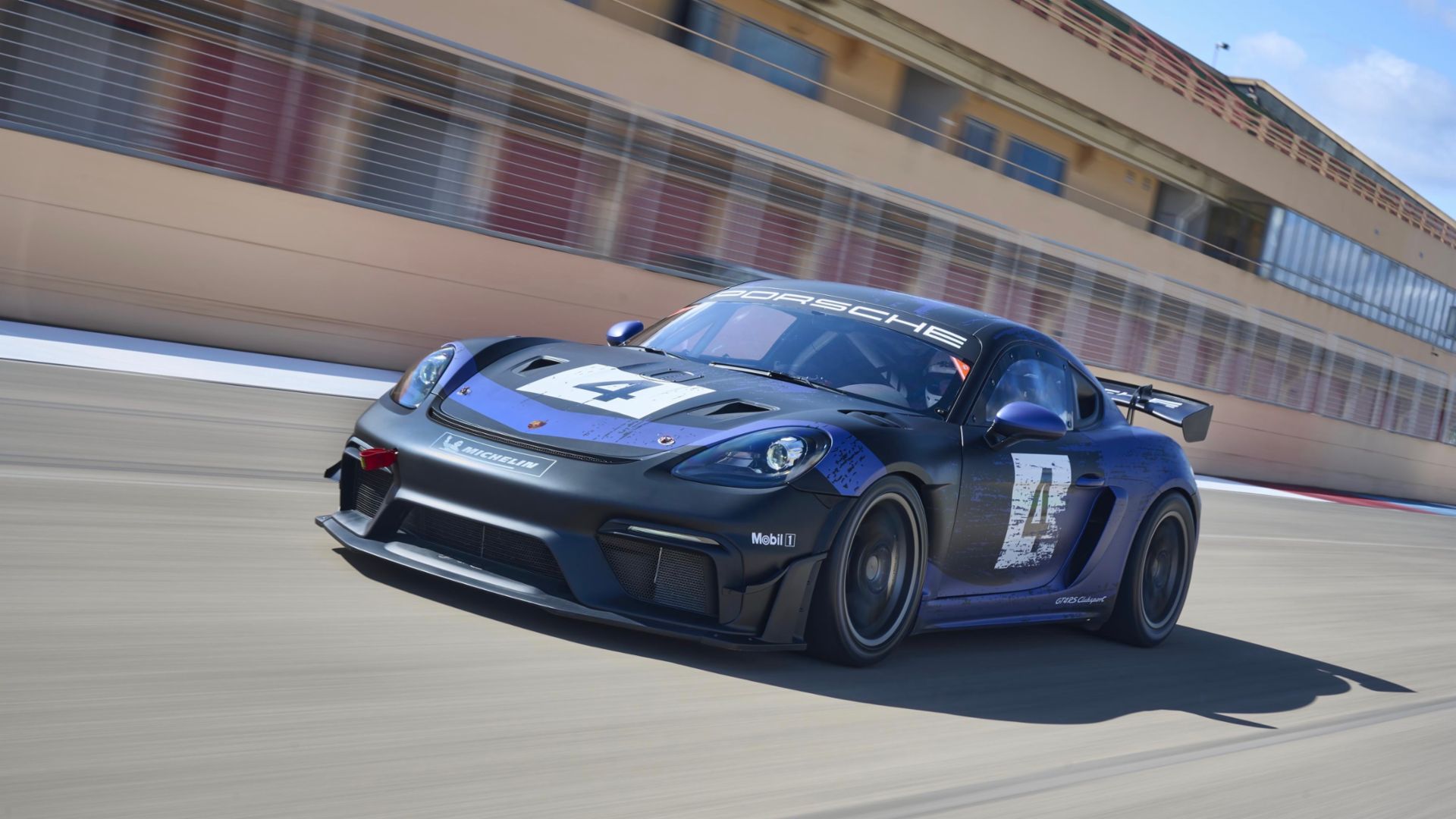Porsche has revealed the new mid-engine 718 Cayman GT4 RS Clubsport race car, which is based on the new 718 Cayman GT4 RS road car.
The most significant change is the 4.0 liter six-cylinder boxer engine, Porsche said. This high-revving powerplant has been taken directly from the 911 GT3 Cup race car and develops 500 horsepower in the 718 Cayman GT4 RS Clubsport—75 horsepower more than the previous GT4 Clubsport model.
In addition to many upgraded details, the focus in developing the new 718 Cayman GT4 RS Clubsport was on further improving overall performance, the company said. The standard 7-speed dual-clutch transmission (PDK) fitted to the car now uses all seven forward gears, rather than six. All gears feature shorter ratios than in the previous model. The homologated vehicle is track-ready and can be used in SRO racing series around the world without further modifications.
“We have incorporated our experience of the last three years of running the previous GT4 Clubsport as well as customer wishes into the development of the new car,” said Michael Dreiser, manager of Sales and Distribution at Porsche Motorsport. “Faster lap times combined with a further improvement in drivability offer our customers a competitive product for the upcoming racing seasons in GT4 class racing competitions around the world.”
The 500 PS 4.0 liter six-cylinder boxer engine taken directly from the current 911 GT3 Cup racing car is almost 18% more powerful than the 3.8-liter engine that was used in the previous model, Porsche said. Thanks to an optimized air intake, maximum power is achieved at 8,300 rpm – 800 rpm higher than the previous engine. The new engine revs up to 9,000 rpm.
Modifications to the chassis have also improved the handling of the 718 Cayman GT4 RS Clubsport, designers said. The damper technology has been revised from the ground up and other upgrades include the use of two-way adjustable shock absorbers with improved characteristics, in addition to adjustable sword-type anti-roll bars front and rear.
Vehicle height, camber and toe are also adjustable. Additionally, three different spring rates for front and rear axle are now available. Special NACA ducts in the hood are designed to direct the air flow more efficiently to the large racing braking system fitted with 380-millimeter steel brake discs. The Porsche Stability Management System (PSM) is designed specifically for motorsports and includes a switch for traction control (TC), ABS and an updated stability control system.
Front dive planes and an extended front spoiler lip increase downforce at the front axle. Wheel arch vents in the wings inspired by the 911 GT3 R and air curtains are specifically designed to calm the air turbulence around the front wheels, while the fully enclosed underbody optimizes air flow to the diffusor at the rear of the car. The swan neck rear wing has now been given a 20-millimeter-long Gurney flap and an adjustment range extended by two additional stages.
In addition to the doors and the rear wing, the hood, the wings, the aerodynamic components at the front end and the steering wheel are now made of a renewable natural-fiber composite material.
The 718 Cayman GT4 RS Clubsport is equipped to meet all the prerequisites allowing it to compete in racing events directly from the factory, Porsche said. This includes the welded-in roll cag, the fore and aft adjustable Recaro racing seat, 2023 compliant six-point racing safety harnesses and safety nets, fire extinguisher system and the built-in air jack system with three jacks. The new safety foam on the driver’s side meets the international requirements of the SRO racing series.
The FT3 safety fuel cell can take up to gallons of fuel, making it suitable for endurance racing. Additionally, Porsche offers two different exhaust systems, allowing the GT4 RS Clubsport to compete at tracks with stricter noise limits. The vehicle is also prepared for the later addition of homologated headlights or openings in the hood for fast refueling to enable the car to be converted quickly for nighttime endurance racing.
